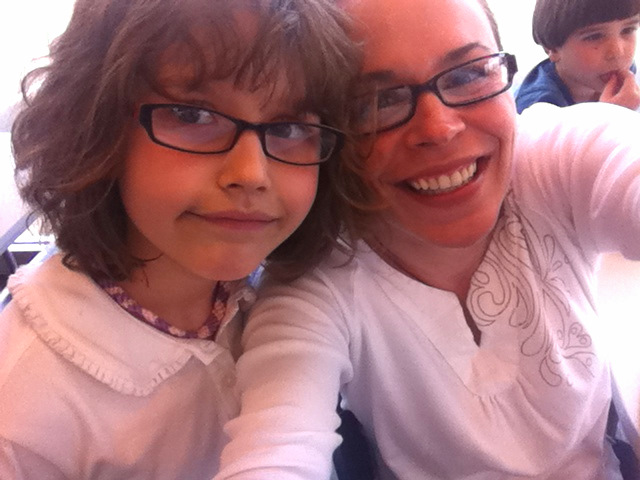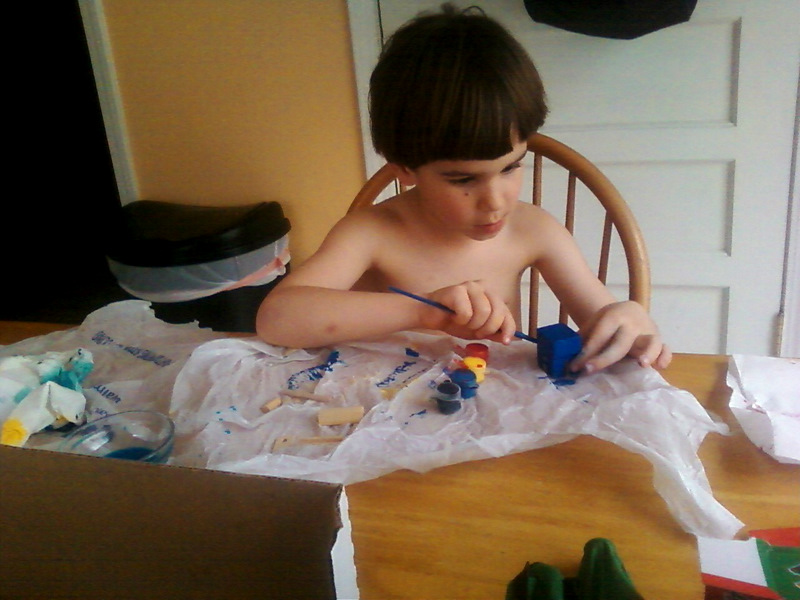from isolation to collaboration
Tuesday, April 5th, 2011elizabeth agonized over her decision to return to full-time work in 2010 as a certified financial planner. she feared that her children would not transition well to aftercare, and she was right. seven-year-old A confessed that she “has never felt so lonely in her entire life.” W, age-five, regressed and started wetting his pants at school every day. “we were all grief-stricken,” elizabeth laments.
in her book perfect madness, judith warner describes the silences that fell in her interview groups with mothers because,
“there are things that are sayable and unsayable about motherhood today. it is permissible, for example, to talk a lot about guilt, but not a lot about ambition.” there is an underlying assumption that we “cannot really challenge the american culture of rugged individualism… we lack the most basic notions now of what a different kind of culture might look or feel like” (31-32).
elizabeth broke the silence and confided both her guilt and her ambition to her dear friend angela, a teacher by trade, who was working part-time in addition to the full-time responsibilities of raising her two nine-year-old boys. together, the two hatched a plan that does challenge the american culture of rugged individualism. elizabeth withdrew A and W from aftercare, and angela quit her part-time job to integrate A and W into her family’s weekday life.
elizabeth admits that she did not put much stock in the initial chatter about such an arrangement. “how would this mother of two be able to go to three different schools every afternoon, much less herd this group of four children?” she questioned. “i knew i could never do it myself.”
but in december, angela made it clear that she was serious about the idea of caring for A and W. she approached elizabeth with a proposal, and the two talked candidly about fair compensation, day-to-day details, and looming fears.
“i will always remember sitting in [angela’s] kitchen making this agreement, and the enormous feeling of relief that washed over me,” says elizabeth. “i started to cry; i was so grateful. when angela responded that ‘we are helping each other,’ that really resonated with me. we’ve been helping each other ever since.”
angela describes the process as an easy decision, informed, in part, by her own experience of returning to full-time work when her boys were five years old. “it was tough on them. they would cry and pitch fits whenever they had to go to aftercare. elizabeth’s situation struck a familiar chord,” she explains. “her family was in need, and i was in a position that allowed me to help her. i am very comfortable looking after children!”
on a typical day, angela fetches A from school at 2:45, drives eight to twelve minutes to pick up her boys, S and L from school, and finally makes her way to a third school to pick up W. once her honda accord is packed to the gills, the entourage returns to elizabeth’s house, and the older kids finish their homework. angela uses this time to practice numbers, letters, sounds with W. she even unloads the dishes if they’re clean! all of the children have after-school activities that vary throughout the year. A currently plays soccer soccer on wednesdays and S has basketball on mondays and wednesdays. for a change of scenery, the group gathers at angela’s house on friday afternoons, snow days, holidays, and other vacation days during the school year.
“the kids get along pretty well,” angela muses. “they are like typical brothers and sister. not every day is perfect, but it’s always an adventure! A and L play very well together. W really looks up to S, and S takes being a big-brother-type seriously. he is always talking about W, and he even taught him how to shoot a basketball and jump rope.”
both angela and elizabeth credit the the success of their arrangement to continued flexibility and open conversation. they have tweaked the details of their partnership as needed. angela recommends this kind of innovation only in cases where “both moms communicate openly and go with the flow. nothing is ever the same twice with this many kids in the mix. everyone is growing and evolving, and i think it’s important to keep this in mind.”both moms describe the entire collaboration as a MakeShift moment. from impromptu rainy day walks that combat cabin fever, to the occasional depositing of children at elizabeth’s office, the little crew of six is making it all up as they go.
on collaberative mothering, perhaps elizabeth says it best:
whenever i watch a show on lions or elephants or primates, i get sad. i see how other creatures nurture their young together. other creatures have not forgotten that it takes a village, a pride, a pod or a pack, to raise young. yet in our “modern” society, we have alienated mothers from each other, and mothering has become quite an isolating experience. having this relationship with angela makes me feel like we, as mothers, are helping each other, the way god intended. it is such a blessing to me.

![photo[1]](http://www.themsrevolution.com/wp-content/uploads/2011/04/photo1.jpg)




![photo[1]](http://www.themsrevolution.com/wp-content/uploads/2011/04/photo11.jpg)









